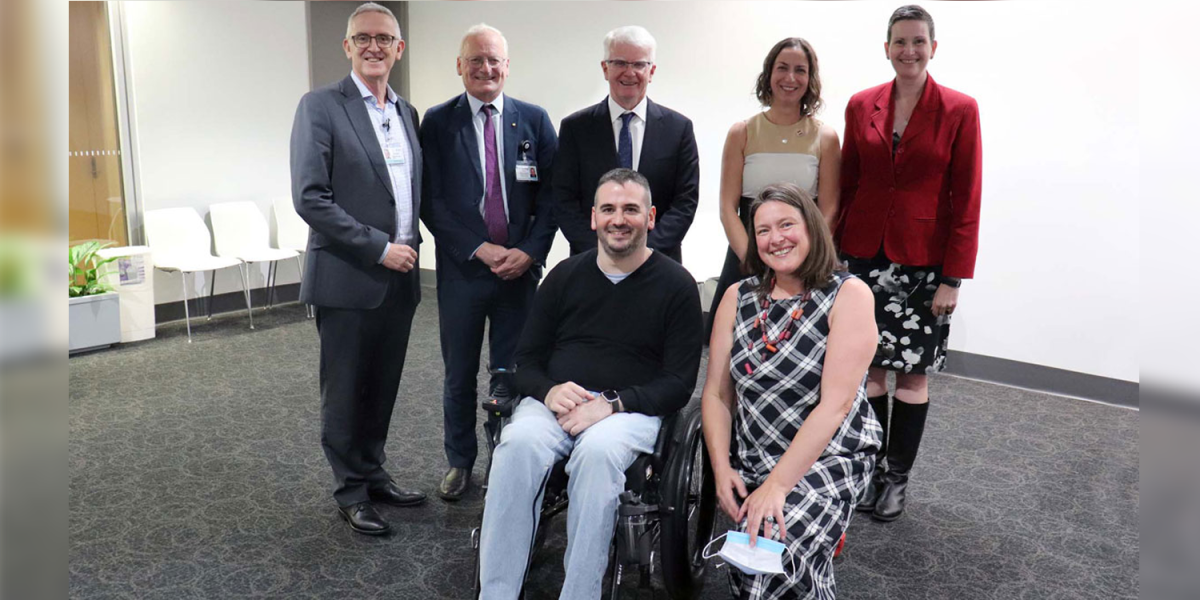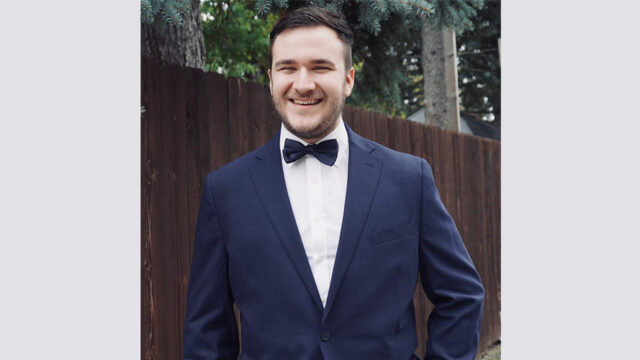The initiative seeks to bring together researchers, clinicians, and MS patients.

People living with multiple sclerosis (MS) have a new opportunity to help shape the way the disease is treated and monitored in the future, with a new partnership between Sydney Adventist Hospital (SAH) and the Australian National University (ANU).
MS Our Health in Our Hands (OHIOH) is an initiative of ANU, bringing together researchers, clinicians, and people with lived experience of MS to develop new approaches to the personalized management of this condition. The ANU is a major university partner of SAH, and MS OHIOH is the first research collaboration between the two organizations.
A symposium held at SAH on March 30 marked the launch of the Sydney MS OHIOH research clinic, based at the SAH. This is the sister site to the MS OHIOH research project at ANU in Canberra and will give the Sydney MS community the opportunity to participate in the important field of MS research.
Why MS OHIOH Is Needed
MS is the most common demyelinating condition in adults. In MS, the myelin sheath that usually protects nerves is damaged, rendering the nerves unable to communicate messages from the brain to the rest of the body in the usual way. This can cause symptoms such as loss of motor function, pain, and loss of sensation. It affects movement in the limbs and can impact vision, memory, and fatigue levels.
The way MS manifests in individuals over time, the symptoms of the disease, and how individuals respond to treatment is incredibly varied and unpredictable. There is a lot about MS that still confounds the MS community.
“I remember the days when the only treatment for MS was intramuscular dexamethasone,” SAH neurologist and director of research Geoffrey Herkes said. “Thankfully, times have changed. Through the hard work of researchers, clinicians, and people living with MS who have driven the research, we now know a lot more about MS, and have many more treatment options. However, further research is crucial to improve the way we detect, treat, and ultimately prevent MS from progressing.”
This is what motivates those involved in MS OHIOH. “Effective prediction of disease progression and outcomes remains elusive,” said Anne Bruestle, the MS Research lead in OHIOH since 2017 and chair of OHIOH since 2022. “While a large array of therapeutic options is now available, navigating the choice of treatment is not supported by clear guidelines based on biomarkers. A major challenge in MS is being able to ascertain appropriate therapeutic and clinical evaluations so that care — personalized to each individual — can be given from the time of diagnosis through the course of the disease.
“We want to find ways to monitor MS more closely with non-invasive or minimally invasive approaches,” Bruestle added. “Being able to identify biomarkers that could be measured frequently will help clinicians better monitor the effectiveness of treatment.”
MS OHIOH harnesses the expertise of researchers and clinicians across many disciplines, including people from physics, engineering, chemistry, data, laboratory research, medical specialists, and people living with MS.
Lived Experience Shapes Research
To better understand the experience of people living with MS and their relationship with research, MS OHIOH includes in their research projects a number of advisors who have MS.
Mark Elisha was diagnosed with MS 10 years ago and became involved in MS OHIOH four years ago as an advisor. “We advise researchers about the experiences of people with MS, how we’d like research to be conducted, and how we’d like to be treated throughout the research process,” Elisha said. “There are a lot of mysteries about MS. In some instances, we have an invisible disability, and it is quite hard to measure some of the symptoms. Therefore, if you try to do research without considering the experience of people with MS, you might struggle to get a worthwhile outcome from research.”
There are still huge gaps in knowledge and treatment of MS, particularly for people with progressive MS. “We need better treatments and, for me, the only way to do that is to continue being on the frontlines advocating for ourselves and being involved in research. I take pride in that,” Elisha said. “With MS you can feel helpless, because you can do all the right things and your MS can still get worse. So being involved as a research advisor is a way for me to take back control and take the fight back to MS.”
The original version of this story was posted on Adventist Record.








